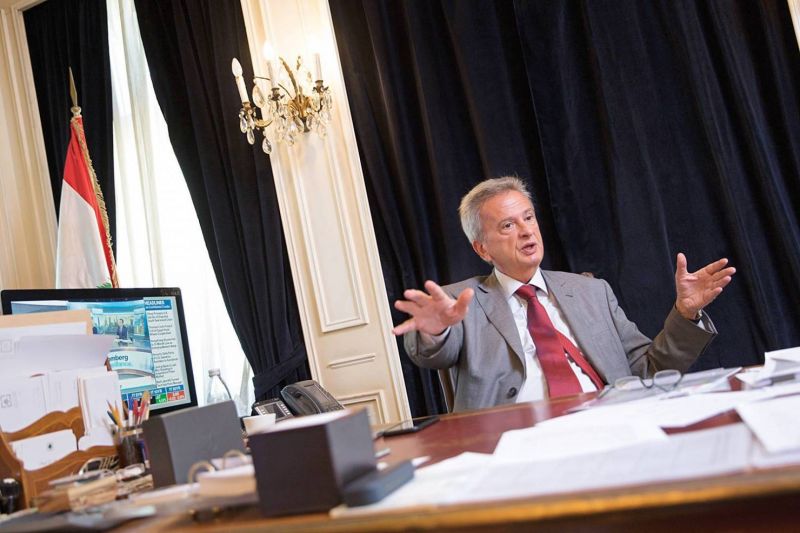
BDL Gov. Riad Salameh has denied any wrongdoing. (Credit: Elie Abi Hanna)
BEIRUT — Lebanon’s public prosecutor has launched an investigation into central bank governor Riad Salameh, a judicial source said, after a Swiss legal request alleged that more than $300 million had been embezzled from the bank through a company owned by his brother.
The senior judicial source told Reuters the offices of Salameh’s younger brother Raja had been sealed off, with computers and files confiscated in the course of the investigation. The public prosecutor had no comment.
Riad Salameh, who denies any wrongdoing, had no comment when asked by Reuters about the opening of the investigation, the sealing of his brother’s office and the confiscation of the files.
The central bank also declined to comment, or to provide contact details for Raja Salameh, and Reuters was not immediately able to ask him for comment.
The Swiss attorney general’s office said in January that it had requested legal assistance from Lebanon in investigating “aggravated money laundering” and possible embezzlement relating to the Lebanese central bank, Banque du Liban.
The Swiss request, seen by Reuters, alleges that Forry Associates, a company owned by Raja Salameh with a bank account in Switzerland that took commission on sales of Lebanese eurobonds and treasury bills, was paid $326 million by the central bank between 2002 and 2014 in transactions labelled as fees and commissions.
Most of the payments to Forry were then transferred to an account in Raja Salameh’s name.
More than $7 million were also transferred from Forry Associates between 2008 and 2012 to an account in Riad Salameh’s name, the document said.
Reuters was unable to find any contact details for Forry Associates.
The Swiss attorney general’s office had no comment about the content of the legal request other than repeating its statement from January. It has not said whether Riad Salameh is a suspect.
A Lebanese government official told Reuters in January that Swiss authorities were investigating money transfers by Riad Salameh and also looking into his brother and assistant. Salameh said any allegations about such transfers were “fabrications.”
Salameh said in a statement to the public prosecutor in January that he had answered questions sent on behalf of the Swiss and “asserted to him that any transfers were not made from the Lebanese central bank’s accounts.”
Lebanese State Prosecutor Ghassan Oueidat sent initial findings to Swiss authorities in February, state media said.
No further details about the case have been officially announced by Swiss authorities since then.
Earlier this month, Lebanese authorities confirmed to Le Commerce du Levant that they had launched a preliminary inquiry into the affair.
Lebanon’s crippled banking system is at the heart of a financial crisis that erupted in late 2019. Banks have since blocked most transfers abroad and cut access to deposits as dollars grew scarce.
The meltdown has crashed the currency, prompted a sovereign default and doomed at least half the population to poverty.
The Swiss investigation is one of several under way or being planned in Europe that target officials in Lebanon’s financial sector and its broader political class.